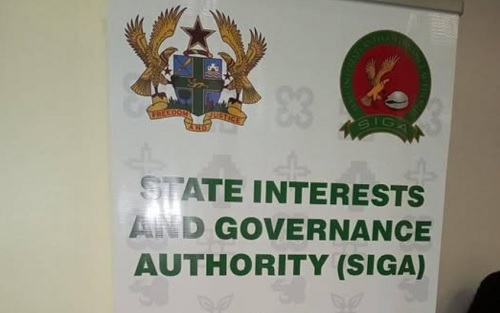The State Interests and Governance Authority (SIGA) has released its 2024 State Ownership Report (SOR), painting a mixed picture of Ghana’s State-Owned Enterprises (SOEs), Joint Venture Companies (JVCs), and Other State Entities (OSEs).
While some entities recorded remarkable revenue growth and operational recovery, others continue to post heavy losses, posing major risks to the country’s economy.
Also Read: Ato Forson: Expensive loans driving up Africa’s debt servicing costs
SIGA report
The report, the ninth of its kind and fourth since SIGA’s inception in 2019, assessed 152 specified entities out of 175. SIGA’s Director-General, Prof. Michael Kpessa-Whyte, said the goal was to drive dialogue on how public enterprises can become true engines of national development.
“Through rigorous analysis and data-driven insights, we aim to inform stakeholders and drive meaningful dialogue around the future of our State-Owned Enterprises, Joint Venture Companies, and Other State Entities,” he said.
The SOE sector posted a 28.3% revenue growth, rising to GH¢133.68 billion in 2024, driven by strong performances in the energy and financial services sectors. Profit before interest and tax also rebounded to GH¢1.57 billion.
However, the sector still ended 2024 with a net loss of GH¢9.67 billion, up from GH¢7.14 billion in 2023, due largely to excessive finance costs of GH¢9.39 billion. Liabilities surged to GH¢281.94 billion, with ECG alone accounting for GH¢71 billion.
Chronic underperformers included Ghana Cylinder Manufacturing Company, Ghana Water Company, Tema Oil Refinery, and Graphic Communications Group. On the brighter side, entities like GPHA, Ghana Gas, Bui Power Authority, and BOST remained profitable.
The JVC sector made a dramatic turnaround, moving from a GH¢1.33 billion loss in 2023 to a net profit of GH¢1.51 billion in 2024. Minority-interest JVCs recorded an even stronger GH¢24.88 billion in net profits.
OSEs also cut their net deficit by nearly 69% to GH¢2.40 billion, though liabilities rose sharply, and the sector continued to post negative accumulated funds due to the Bank of Ghana’s equity position.
Finance Minister Cassiel Ato Forson admitted the findings were troubling. “The task ahead is immensely difficult, given the dismal nature of the 2024 performance. It is unequivocally the case that the expectations of the Ghanaian people are that SOEs must deliver,” he said.
He pledged stricter oversight and reforms to restore confidence, while SIGA stressed the need for fiscal discipline, stronger governance, and prioritised dividend payments.


